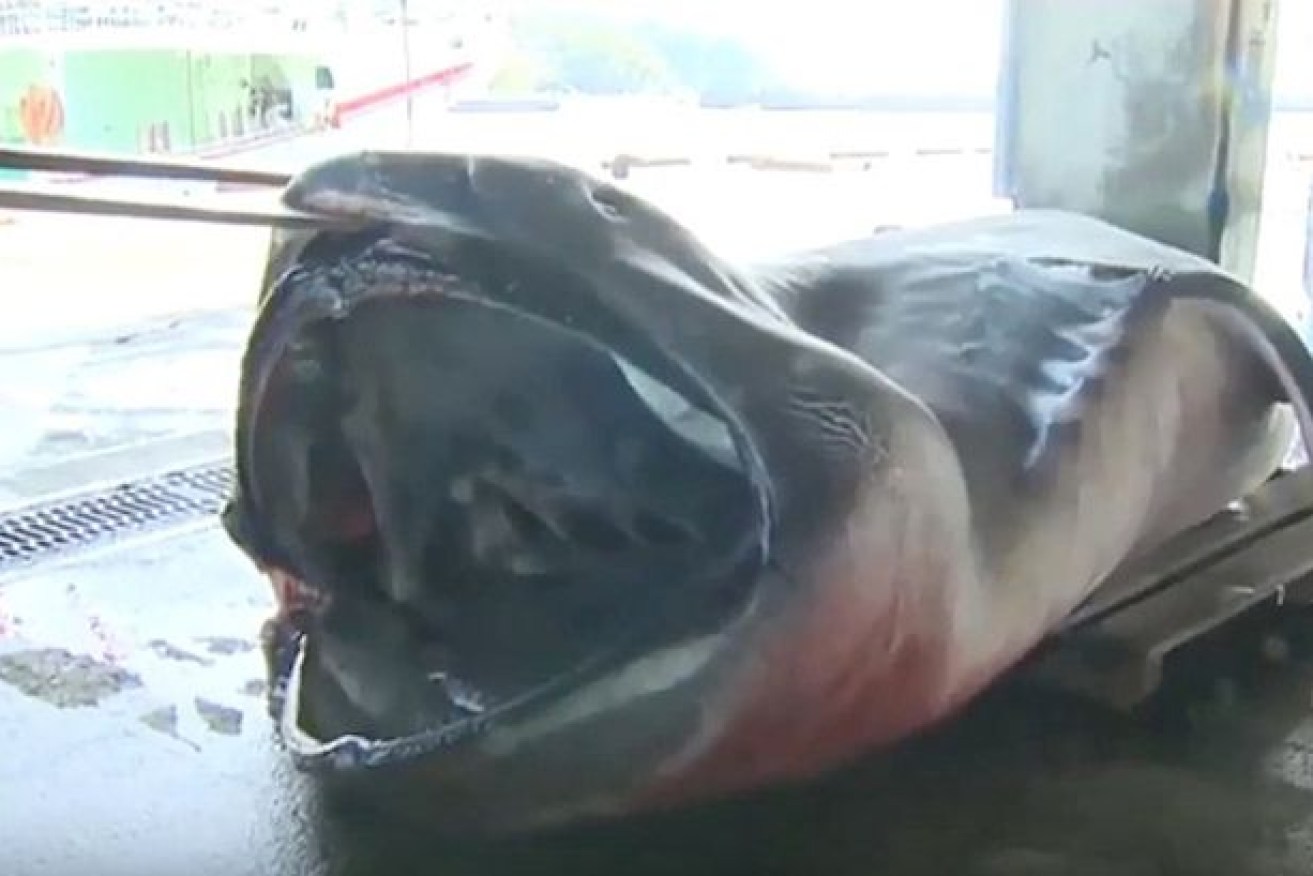Terrifying megamouth shark caught in Japan


One of the world’s rarest species of deepwater shark has been captured off the Japanese coast.
The monstrous megamouth shark (Megachasma pelagios), which has been sighted less than 100 times since it was first discovered, was caught by a group of fishermen last week five kilometres off the Owase Port in Mie Prefecture, central Japan.
According to video footage documenting the massive haul and the accounts from the fishermen, the rare specimen was about five metres long and weighed just under a tonne.
• The giant ‘unicorn’ that once walked the Earth
• Prehistoric sea dragon ‘wiped out by climate change’
• This fisherman just landed a giant swordfish
As the name suggests, the megamouth’s most distinct feature is its enormous mouth, which can reach up to 1.3 metres wide, and its lips and head are unusually large relative to its body size. It is so unlike any other species of shark that it has been listed as the sole extant member of the Megachasmidae family.
It was discovered by accident in 1976 when one of the species found itself caught by the anchor of a US Navy ship AFB-14 off the coast of Kāneʻohe, Hawaii. Even then scientists thought it was a practical joke and did not give it an actual name until 1983.
Since then, there have only been around 100 confirmed sightings according to the International Union for the Conservation of Nature (IUCN), mostly in the waters around Japan, Taiwan and the Philippines. There have also been sightings in the waters near Indonesia, Australia, Mexico, Senegal and South Africa.
The megamouth shark is one of only three known living species of planktivorous shark – it is a filter-feeder that swims with its enormous mouth open to capture plankton and jellyfish.
Rare Megamouth Shark Caught in Japan (bycatch) https://t.co/KRvTl045y5 pic.twitter.com/J7ZmiQVhtv
— Tracking Sharks (@trackingsharks) April 15, 2016
In 1990, scientists tagged a megamouth off the Californian coast and found that it swam at a depth of around 120 to 160 metres during the day and would ascend to depths of around 12 to 25 metres at night.
However, there is still so much we don’t know about the elusive species – the IUCN has it listed as ‘Least Concern’ (it was listed as ‘Data Deficient’ until last year) and says: “Further research on its ecology and habitat are required to better understand the species and the potential effects of fishing.”
Another megamouth washed ashore in Japan in 2014. The Marine Science Museum in Shizuoka held a public autopsy of the shark, with 1500 people reportedly turning up to have a look.








